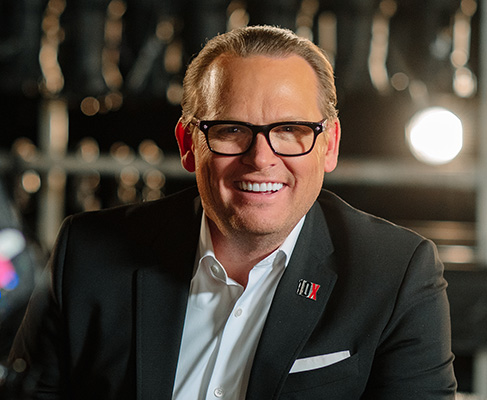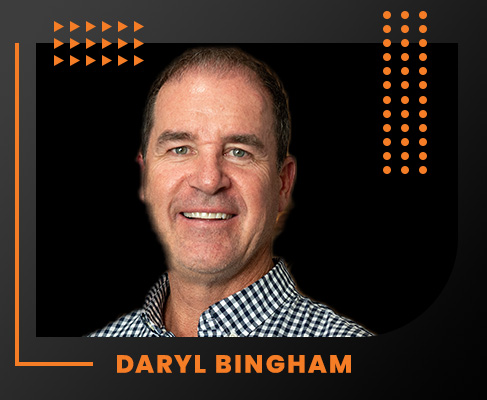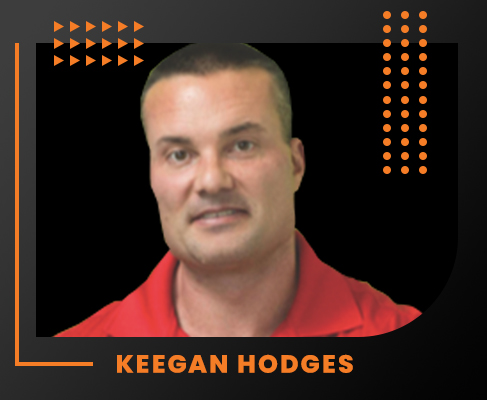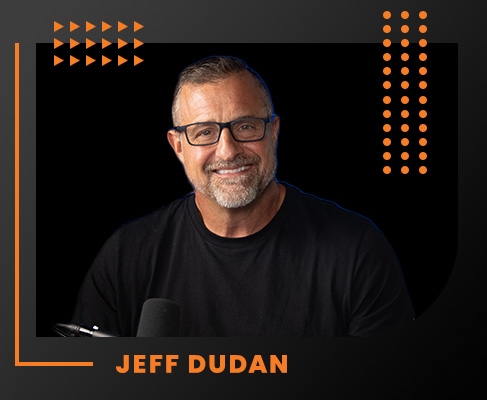Private equity is rolling in, consolidation is happening, and small business owners are trying to figure out how to react. But what all of it was predictable, and you could know exactly how to position yourself for success and to maximize and capture the value of your blood, sweat, and tears? We welcome Brandon Dawson, Co-Founder and CEO of Cardone Ventures to To The Point!
Brandon successfully ran several small businesses, and has been that scorned independent small business owner that was taken advantage of and leveraged against by private equity. Since then, he’s raised and managed BILLIONS of dollars to grow many companies in a wide range of industries. He’s worked with some big names to grow businesses including former podcast guest Michael E. Gerber and even Dana White of the UFC on 10x Health System. Brandon knows what a poorly-run business looks compared to a remarkable one, and understands the levers that you need to pull to get to that next level and beyond. He’s made it his mission to help independent business owners and entrepreneurs capture the value they deserve for their life’s work, and is here to help you do just that.
A Pissed Off and Screwed Over Entrepreneur
When Brandon was in his 20’s, he made the decision to become an entrepreneur. He met with hundreds of business owners, offering to partner with them. He found a lot of owners who were tired and burnt out, and starting doing partnership agreements with them. He parlayed all this into a private equity-backed and publicly traded company. At the age of 29, Brandon was ringing the opening bell on the floor of the American Stock Exchange. In just 36 months, he’d buy 138 businesses and continue to grow his enterprise.
Private equity had entered Brandon’s operation about 3 years in, and things were on the uptick. They were becoming very profitable, and moving towards global expansion. Unfortunately, the private equity decided to sell it all – despite Brandon not wanting to. This left him pissed. It’s a hard lesson that a lot of business owners have learned when they access private equity – that if the PE exercises control, it may not matter what you want to do. This set Brandon off on a different path. He wanted to build his next business and innovate how consolidation, franchise organizations, and independent business owners could grow, scale, and create massive value together without going the private equity route.
A New Path Forward
When accessing private equity works, it’s phenomenal. Brandon says that most of the time, however, it doesn’t work. The business owner gets screwed over. That’s why he went on this journey of revolutionizing how to build a business without needing outside funding or giving up control. His method was to aggregate and consolidate hundreds and hundreds of independent businesses to build and capture massive value together. He launched this endeavor in 2005, and in 2016 sold it for 151MM at 77x EBITDA to a billion-dollar company. Not stopping there, he worked with that company to deploy what Brandon had built into their ecosystem and grew that from 1 billion to 4 BILLION in 36 months. After this journey, Brandon took a new step. He partnered with Grant Cardone to take his methods even further, launching Cardone Ventures just over 3 years ago.
Millions of Dollars of Research
Brandon doesn’t just “think” he knows what he’s talking about – in addition to an incredible amount of experience, he hired FTI Consulting in 2009 to do a massive research project…and has paid millions of dollars over the last 13 years. They looked at thousands of industries to identify markets that were going to go through disruption, technological evolution, and consolidation. From 2009-2012, they mapped and charted this data out across 4,000 unique business industries. After selling in 2016, he then hired Investor Group Services (IGS) out of Boston (who many private equity groups use for their due diligence) to continue this research.
One of the things Brandon discovered was that the home services industry was going to be an incredible marketplace. There were lead indicators that things were heating up when EBITDA multiples started climbing 50-70%. If you owned an HVAC company in 2010-2012, you were probably offered around 2-2.5x EBITDA. Now? You’re likely to be offered anywhere from 7-22x EBITDA. Private equity has been dying to get into the trades and deploy technology and best practices and wrap it with service offerings.
This research has shown that any time an industry goes through a cycle like this, it’s usually about a 10-year window. Business owners should want to get in right and capture the most amount of value, and that’s what Brandon wants to help his partners do.
How Private Equity Enters and Moves in an Industry
When Brandon launched Cardone Ventures with Grant Cardone, it was with the idea of looking at hundreds of thousands of businesses to understand what is happening dynamically and in real-time inside these spaces. That’s what they continue to research. What they’ve continued to find is that the way private equity moves through spaces and the way consolidation and value occurs is about 100% identical and predicatable, regardless of the industry.
The traditional cycle of consolidation in an industry usually starts with a smaller guy that goes out and consolidates a handful of businesses. This would be called a “regional dominant player”. Then, that team accesses private equity. Private equity enters and looks for a business that’s about 125-175MM in size to be their platform company. This is a key piece to understand. Private equity trying to buy a platform company is a lead indicator of a specific stage in this cycle.
Why Are Platform Companies Significant?
Private equity groups have a couple of very common ways they enter, depending on their level of sophistication. Some of the smaller groups might go out and buy a group of smaller businesses and smash them all together, hoping that leaders emerge. This is rushed way of entering a market that is primed for consolidation. It’s a strategy that involves buying these businesses at lower EBITDA multiples and then amalgamating them into a system with some automation and technology.
A more sophisticated private equity group will generally wait until they find an owner that has already reached this magic range of 125-175MM, and then acquire them in one swoop to be their platform company. From there, they will move forward and start acquiring more smaller businesses. When Ken Goodrich’s sale went through, it was a key indicator to Brandon that private equity was going to start paying huge multiples for platform companies. That was the big sign he needed to really get interested in the HVAC industry and trades as a whole.
Unfortunately, this also means some downsides for companies that aren’t in that 125-175MM range. Sure, the multiples are going to be higher than normal now, but they will go down over time. These private equity groups are going to reach critical mass at some point and only be interested in building – not buying. You might just be an add-on or a distribution point if you’re too small…just another small business to assimilate.
10 Categories of Operational Excellence
That’s not to say it’s all doom and gloom for small businesses in the trades, of course. But certainly, something to understand depending on what size you’re at. Why do the more sophisticated private equity groups look for a platform company in the 125-175MM range, specifically? It’s because in order to even get to that size, you have to have a certain level of operational excellence across ten key categories.
First and foremost, a platform company has a strategy. Secondly, it has a marketing machine. That means being able to generate clients across the spectrum of the enterprise. Third, it has a sales process that has documented, replicated, duplicated, and automated to create the most amount of leverage. Fourth, it has leadership and competency – leaders that come from bigger, more advanced ventures that understand these ten elements at a higher level. Fifth, you need to have financial sophistication. That includes things like real-time reporting, cash to budget, rolling forecasting, and more. After these initial five, other elements include data, automation, technology, and then the most important element of a platform company: Investment Thesis. That’s what to buy, when to buy, and how to buy (think products, negotiating with suppliers, etc).
Think of these 10 levers of operational excellence on a scale from 1-10. You simply can’t get to this 125-175MM size if you’re not at least a 6 on all these elements. A 1-10MM company might be a 1 or 2 in most of these categories. As you grow and gain experience, leadership, and wisdom, you will slowly raise your level of operational excellence in these categories.
Whether your aim is to be a platform company or not, these same levers are how you grow and scale your business. That’s what Brandon is trying to help business owners understand.
Cardone Ventures
With Cardone Ventures, Brandon is able to achieve his mission of helping these smaller business owners grow and capture the value they’ve worked so hard to create. In just 40 months, they’re already managing over 1.4 billion in assets. If you’re a business owner that wants to get educated on the elements that create value for your business, they offer a ton of programs ranging from inexpensive boot camps to full-on mastermind groups. If you truly want to be educated on the marketplace you’re operating in and understand these 10 elements of operational excellence, you need to educate yourself. That’s how you’ll be able to benchmark where you’re currently at and understand where that value is in your business and how to scale and grow from here.
Or, you can hire Cardone Ventures to engineer your business model. They can take all of their data and research and combine it with your own market research and your operational work. There are lots of companies out there that have plenty of operational excellence but simply don’t know how to build this structure in their organization. If someone else can show you the roadmap and help you understand where to focus and maximize value, getting to that next step doesn’t have to be a struggle.
Get to The Next Level
There is a predictable, traditional private equity move of paying hire valuations to acquire the largest regional businesses possible in the HVAC industry and many other trades verticals. The goal is to amalgamate, consolidate, and aggregate all of the smaller, not-so-well-run businesses into these groupings to take advantage of an industry evolution. This evolution will be both technologically and financially, with a move towards recurring and renewable revenue streams as well as add-on revenues. It’s happened time and time again, and Brandon knows this process better than anyone.
According to national historical data,
Ready to Take the Next Step?
Interested in getting in touch with Brandon, or wanting to learn how to take some of the next steps with Cardone Ventures? Check out the Cardone Ventures event page!



